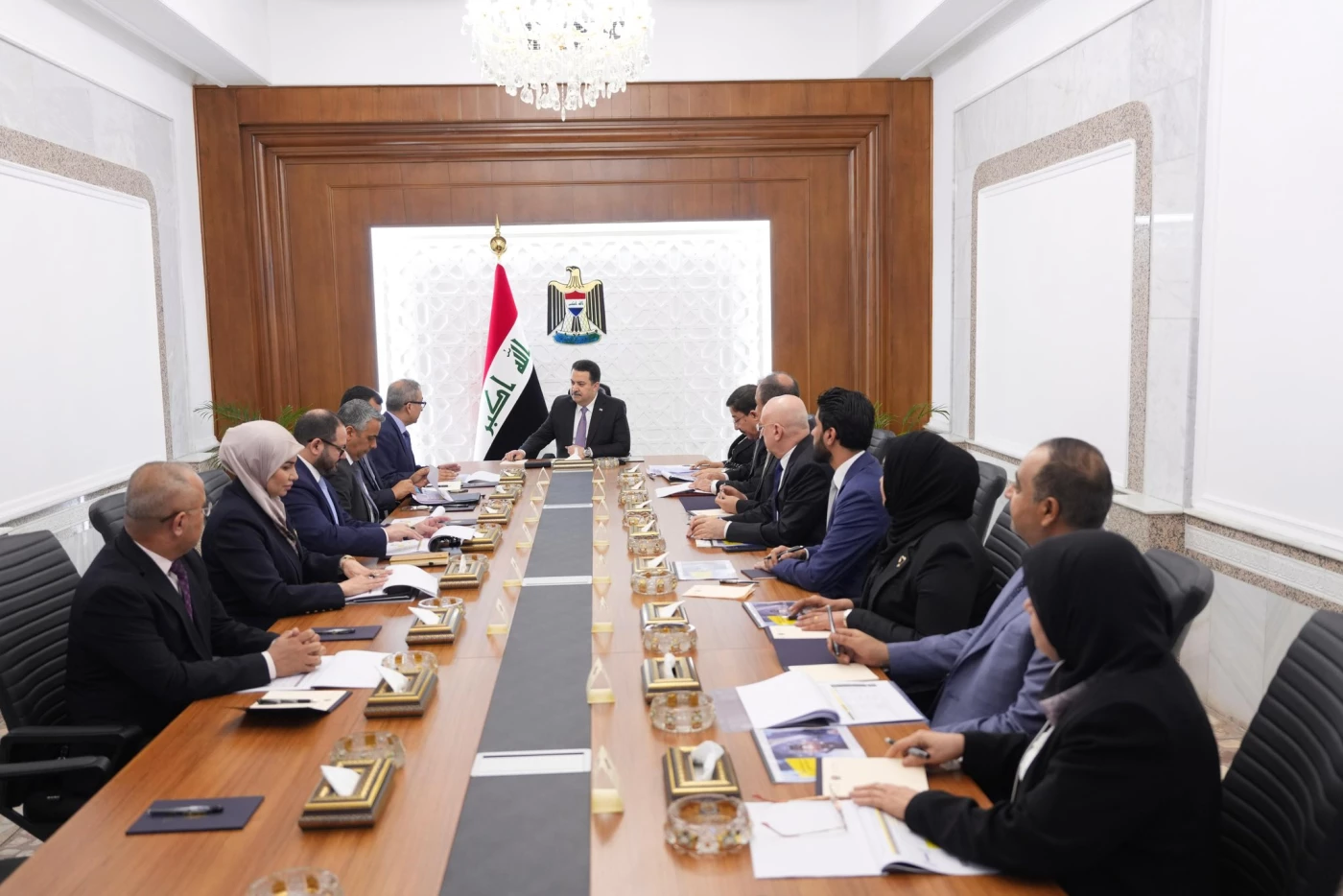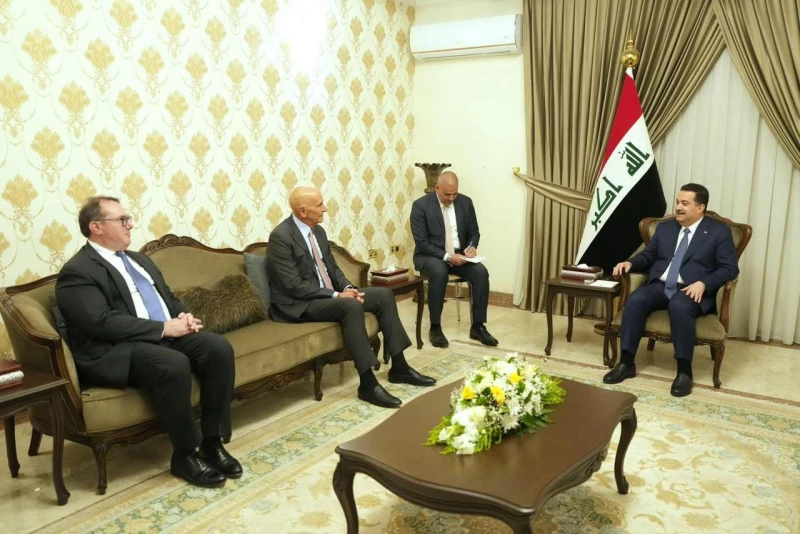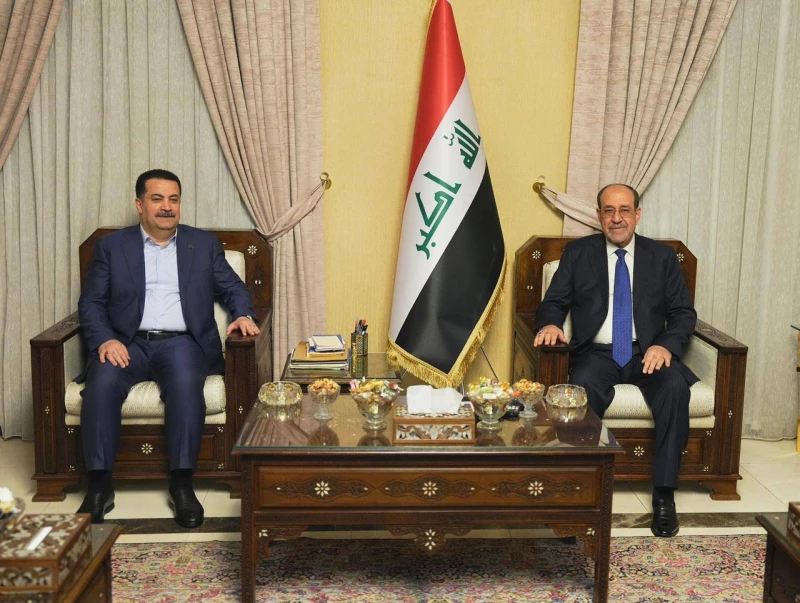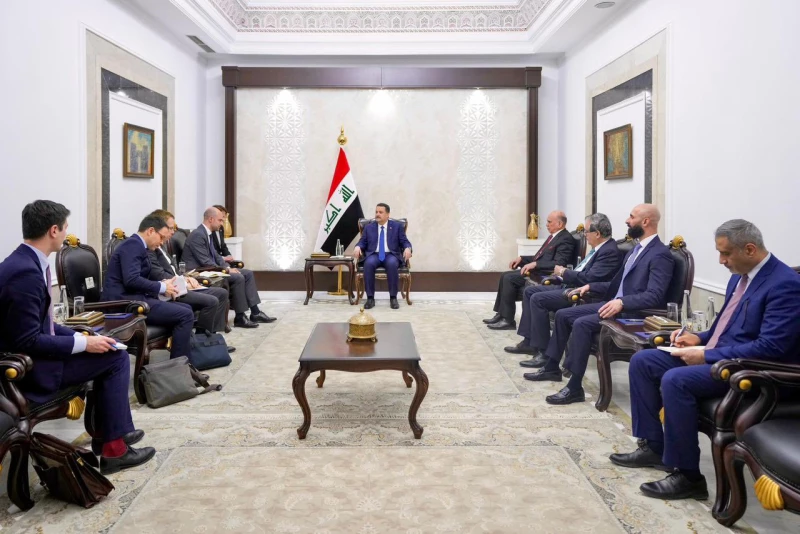ERBIL, Kurdistan Region of Iraq - Iraqi Prime Minister Mohammed Shia’ al-Sudani on Sunday followed up on reform procedures for Rafidain and Rasheed banks in a meeting also attended by representatives of the Ernst & Young, urging both banks to “accelerate” the process amid fears of possible sanctions by the US.
“The meeting reviewed the progress of the banking reform process adopted by the government to restructure and develop Rafidain and Rasheed Banks,” read a statement by the Iraqi Prime Minister’s media office.
The meeting focused on revisiting the two banks' "internal regulations to align with international standards and the objectives of banking reforms, addressing the issue of the banks’ debts and repayment mechanisms, and reviewing the measures taken to train their staff,” the statement added.
The reform processes are primarily aimed at reforming the banking sector to enhance public trust and encourage cooperation with local and foreign investors.
The Iraqi government has partnered with Ernst & Young to restructure state-owned banks, including Rafidain and Rasheed, and has contracted American consulting firm Oliver Wyman to develop the private banking sector.
These initiatives align with broader reform plans aimed at modernizing Iraq’s financial infrastructure. The US Treasury has reaffirmed its support for these reforms and praised Iraq’s efforts to diversify its economy.
With Donald Trump back in the White House, concerns are mounting among Iraqi officials and financial experts that sanctions on Iraq’s banking system could trigger economic instability.
A recent White House memo emphasized stricter measures against Iran, which has fueled calls within the US political establishment to sever financial support for Iraqi entities suspected of transferring funds to Iran and impose sanctions on key institutions. Rafidain Bank has been singled out due to allegations that it enables money transfers to Iran and Iran-backed armed groups.
Trump signed a national security presidential memorandum in early February, restoring his maximum pressure policy on Iran and detailing a series of new economic measures against the Islamic Republic.
The memo directed US agencies to strengthen financial restrictions by maintaining countermeasures within the Financial Action Task Force (FATF), tightening regulations on revenue channels, and increasing compliance requirements for financial institutions dealing with Iran.
The document explicitly called for preventing Iran from using Iraq’s financial system to evade or circumvent US sanctions. It also directed US authorities to ensure that Gulf nations are not used as transshipment points for sanction evasion, signaling a broader crackdown on illicit financial flows in the region.
During the Sunday meeting, necessary steps for the establishment of a new bank named “Rafidain First Bank,” already approved by the Council of Ministers in early January, were also discussed.
"This bank is envisioned with a modern approach that adopts advanced technologies and international standards, aimed at achieving governmental financial and banking reform objectives, ultimately contributing to economic growth and development,” the statement from Sudani’s office detailed.



 Facebook
Facebook
 LinkedIn
LinkedIn
 Telegram
Telegram
 X
X


